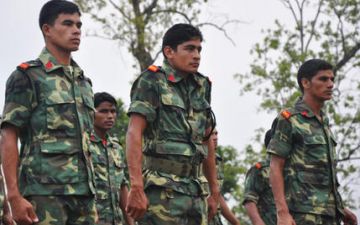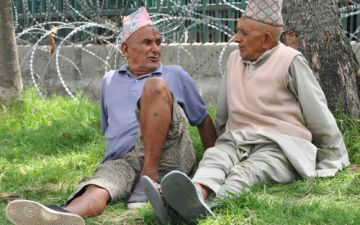Until it was abolished in 2006, Nepal celebrated its monarchy for 230 years. No longer. Following a decade-long Maoist insurgency that killed about 12,000, the rebels signed comprehensive peace accords, ran in a historic election and came one seat short of winning a clear majority in the parliament. The new legislature abolished the monarchy. What followed was an even greater challenge: reshuffling the entire system and coming up with a new constitution.
In spring 2010 hundreds and thousands of Maoists took to the streets of Kathmandu and other cities, calling for the prime minister to resign and disband the current government. All this, in addition to a major controversy regarding the integration of the nation's national army and former Maoist militias, have lowered hopes of approving the new constitution.
This project examines the controversy surrounding the integration of the Maoists into the army, a move that senior military officials claim would break the unity of the army. The chief of army has repeatedly called the Maoists "politically indoctrinated" -- hence difficult to integrate them into the "disciplined, professional, competitive and apolitical" Nepal army.
As Nepal experiments with democracy, it has finally hit home to Nepalis that rewriting the new constitution is crucial to the country's peaceful future. What remains uncertain is whether the nation can achieve the consensus required to achieve that goal.




